Tecola W Hagos (30 March 2020)
“If you only have a hammer, you tend to see every problem as a nail.”
Abraham Maslow
In General
The acceptance by the Government of Ethiopia the invitation of the Trump Government for
Ethiopia to continue the negotiations with Egypt and Sudan in Washington DC was a serious error of judgement of the Government of Ethiopia. It should have been absolutely clear to the Ethiopian Leaders that possible negative and adverse stance of the Trump Government against Ethiopia and in favor of Egypt. After listening to three of the Members of the Ethiopian Delegation, i.e. Engineer Gedewon Asfaw, Attorney Yacob Arsana, and Minister Selishi Bekele’s explanations for accepting the invitation, I am totally convinced that the three Ethiopians are as much upset and even more vehemently opposed to have America and the World Bank in the mix of things especially after they witnessed the unfolding of the diabolical scheme to have Ethiopia cornered.
My own reading of the three individuals’ statements from their video interviews left me with the impression that those three individuals might have argued to varying degrees against the acceptance of the deceitful invitation of the Trump Government. If I have some little doubt it is with Gedewon Asfaw, for he gave me the impression of being too rational and too trusting. Nevertheless, my admiration for these three honorable professionals is based in their demonstratable knowledge of the many complex legal and technical issues they have tackled and seem committed to defend and preserve Ethiopia’s Sovereignty over its watercourses, rivers, and lakes. I did not take into consideration Minister Gedu Andargachew in the matrix of this discussion, I doubt if his presence in the Delegation was necessary at all.
PM Abiy Ahmed: In my view, the decision to accept that fateful invitation must have been the result of PM Abiy Ahmed’s inclination tipping the scale/choice for the acceptance of the invitation. Despite the fact that I support PM Abiy Ahmed in clear distinction to some of the prominent political competitors, such as Jawar Mohammed (nihilist, insanely anti-Ethiopia), Dawood Ibsa (leader of OLF working with the terrorist Jaal Maro in Western Wollega), Bekele Gerba (primitive ideologue, hateful separatist by ethnicity), Debretsion Gebremichael (anti unitary Ethiopia, supporter of tyrannical hold on power of narrow TPLF’s Tigrie Kilil), Berhanu Nega (unreliable opportunist, otherwise excellent economist and democrat capitalist), Eskinder Nega (most courageous activist, but now in the wrong field of narrow patrician local identity politics), he remains unquantifiable place-holder for our future developments. Those mentioned here are the tip of the iceberg of opposition politicians some of whom should be charged with serious murderous criminal activities.
Moreover, I still support PM Abiy Ahmed even if I have serious reservations on Abiy’s inner personality of his excessive desire to please others. I am worried of his unpredictable and do-good-to-all personality and drives. For example, waiting out at the entrance to his official office complex, defying all protocol, for Secretary Mike Pompeo, a mere Trump’s Cabinet member, and later driving Pompeo around are acts that demean us all. He seems to forget that he represents the People and State of Ethiopia. Unfortunately, he remains as the soft under-belly of Ethiopian patriotism, however, he is the best choice as our leader for the decade ahead. Overall, one can say that the Ethiopian Leaders brought about the disastrous situation by their own utter miscalculations and/or misplaced trust in the leaders of the United States of America. But they did save the day by not cowering to America’s misguided bullying and by insisting that they will go ahead and fill the dam this coming heavy rain season. The challenge to all of us is how to protect and guide this phenomenal Leader to make the right choices that would benefit and protect our wonderful Ethiopia.
Mustafa Omer: The one Ethiopian who is capable and viable to supplement or replace Abiy Ahmed is the truly courageous statesman Mustafa Omer. Even the wild challenger of Ethiopian unity, the Ogaden National Liberation Front (ONLF), with its vociferous leaders cannot withstand the moral and political influence of Mustafa Omer. Despite a recent attempt on his life, his popularity and his demonstratable abilities to govern and administer a complex society have endeared him in the hearts of millions of Ethiopians all over the country. Although Mustafa is a devout Muslim, he is considered as a beloved son and protector of the Ethiopian Orthodox Church just as much if not more like PM Abiy Ahmed. In such dire situation Ethiopia is now, it is wonderful to have amongst us Mustafa Omer, a man that uplifts our hopes and our pride in Ethiopia.
Isaias Afeworki: There is no question that Isaias Afeworki has come a long way from being violently antagonistic to Ethiopia to being its best defender and supporter. I am not making this statement lightly. His joy and excitement when visiting Addis Ababa, Awasa, Baher Dar cannot be faked. The people of Eritrea and Ethiopia when they met at the opening of the borders was heartbreaking. When it comes to Isaias, the issue is how much of it is genuine and how little is forced on him by circumstances both at home and from outside. I can make a categorical statement that Eritreans within Eritrea are far less ill-disposed toward Ethiopia the State than most Diaspora Eritreans who are often insanely opposed to Ethiopia (not so toward Ethiopians, for these people do have genuine liking for each other more than any Horn people). I understand the tight political space Isaias is in, difficult to manipulate the gathering political forces in opposition or in support of Egyptian blind demand of support from the Members of the Arab League. I am inclined to consider Isaias’s predicament not as a choice between Egypt and Ethiopia per se, but rather as a question how best he can maintain his relationship with Members of the League without betraying Ethiopia’s vital interests. His recent official rejection of Egypt having any military base on Eritrean territory is an affirmation of such good intentions. At any rate, he has to forego his grudge against the TPLF and work toward close relationship with the people of Tigray.
Focus of this Commentary: Having the above statements as a background, I will focus this paper on some international legal issues and questions by discussing where Ethiopian Government and Delegation Members protected our national interests. I will demonstrate also the abuses of Egypt of the waters of Blue Nile, the arrogant interference of Trump and his Government to force Ethiopia sign a revived colonial treaty. And finally, I will make the case for Ethiopia’s legitimate aspiration fighting stark poverty of its citizens, and a conclusionary remark on how to conduct negotiations on behalf of Ethiopia and its Citizens.
Some International Law Questions and Clarifications Concerning the GERD
The more the Egyptian leaders [the Executive body and/or the Legislative body] issue statements and resolutions against Ethiopia, the more they seem to me to be living in an alternate-universe in the realm of fantasy: they throw childish tantrum, they threaten, they support numerous subversive groups as liberation fronts, they lie, and/or they demand absurd solutions. The Resolution of the Council of Arab League is unbelievably sophomoric and delusional. The Council passed a resolution that forbids Ethiopia not to use its own natural resource of the water of Tikur Abay (Blue Nile) claiming historic 100% use of the river under colonial period treaty signed between Egypt, Sudan, and their colonial master of the period, the British Empire. Ethiopia, as a sovereign and independent country has repeatedly declared the invalidity of such agreements entered between two down-stream riparian territories and their colonial master.
The critical principles for us to consider in connection with Colonial period agreements and practices are two: the Nyerere Doctrine and the uti possidetis principle. In simplified language, the Nyerere Doctrine states that colonial period international treaties or agreements should be renegotiated when a State becomes independent, and thereby such a state may choose what treaties and agreements it will accede to or which agreements it will repudiate. Zerihun Abebe Yigzaw, a distinguished diplomate with the Ethiopian Government, wrote an exceptionally potent article, Cain’s Path of Bernard Membe of Tanzania on the Nile, criticizing the then Minister of Foreign Affairs of Tanzania, Bernard Membe, for scuttling the ratification of the CFA and for further promoting the claims of Egypt based on Colonial period self-serving agreement with itself as a “protectorate” of Britain in 1929. For full treatment of the Nyerere Doctrine I recommend highly, Yilma Makonnen, The Nyerere doctrine of state succession : Dar es Salaam to Vienna, New York: Eastern Africa Publications, 1985.
Even though I argued strongly for using the Nyerere Doctrine, I must also point out the fact that the focus of the Doctrine is/was the newly independent countries who were under colonial rules. Ethiopia was never under such colonial rule in its thousands of years of continuous existence except for a five-years occupation of Fascist Italy of its Capital City and major connecting highways et cetera, but most of the countryside was maintained and administered by the Ethiopian Patriot Leaders.
Even without the publicly declared position of Ethiopia, even without the great Nyerere Doctrine on State Successions, the age old International customary law and norm of rebus sic stantibus renders all such colonial period treaties and all other such instruments inapplicable or null and void when it comes to the utilization of the waters of cross-border rivers by riparian countries. I must also remind my readers that such principle of rebus sic stantibus is the exception to the much larger international law principle of pacta sunt servanda that holds international treaties and agreements must be respected and implemented appropriately. It is here that the uti possidetis principle figures out prominent, especially dealing with border disputes where treaties are not preeminent between new states with past colonial rule background.
“[T]he concept of uti possidetis shows deep links to colonization, self-determination, territorial integrity, sovereignty, statehood, creation of states, and territorial boundaries. The controversial notion of uti possidetis has shaped many modern states and created new identities for postcolonial states. In creating new identities, it dismantled precolonial identities of nations. Hence, in many instances it became a source of relentless battles and on many occasions bloody wars. A prodigious amount of literature exists on the principle of uti possidetis, including its origin, usage, and relation to issues of decolonization and self-determination. This Roman law doctrine was used to stabilize the border not only in the Spanish Empire in South America after the Spanish withdrawal but also during the decolonization process in Africa and Asia. The purpose of this principle was to maintain the territorial stability of newly created states at the time of decolonization and also to resolve issues related to title, boundary demarcation, and delimitation of maritime areas in situations in which a treaty did not exist or did not deal with such issues.”[F. N. Lone (May 2016) ‘Uti Possidetis Iuris’ Oxford Bibliographies Online: International Law, Oxford University Press.]
It is worthwhile effort to understand how the modern world has incorporated such ancient international norms in its Conventions. The Vienna Convention on the Law of Treaties of 1969 in its Article 62ff has rendered such norms for us to ponder and understand the complexity of international treaties and agreements. Even closer to our predicament is the 1978 Vienna Convention on Succession of States in respect of Treaties. It is not a case where for frivolous reasons nations can create conflicts. There is always the foolproof doctrine as a last resort the Doctrine of Nullification that would allow Ethiopia to nullify any agreement that would harm its vital national interest.
The highly paid journalist Yayehsew Shimeles of Ethio Forum interviewed Ambassador Seyoum Mesfin recently. Seyoum raised and discussed several extremely important issues not only about the recent crises between Ethiopia, Egypt, the United States, and the Arab League, but also, he freely offered us his observations on the state of governance of PM Abiy Ahmed. I will discuss most of his observations here under. The issues that have bothered many patriotic Ethiopians (including me) most is the question of the depth of Abiy Ahmed’s commitment to the GERD Project. For example, during his official visit of Egypt 10-11 June 2018 at the official welcome ceremony, he made what amounts to a surrealistic statement swearing in the name of “Allah” that he will not do anything that will harm Egypt. Of course, such off the cuff statement has no legally binding effect on Ethiopia, but it lowers our stand in the eyes of both our friends and our adversaries. I must also point out the fact that in quoting and/or discussing Seoum Mesfin here, I am not cleaning his alleged soiled past, often discussed by numerous writers, as one of the leaders of TPLF, as Minister of Foreign Affairs, or as Ambassador to China.
My own sever criticism of Seyoum has always been limited to a single item: the fact that he was the enabler of Meles Zenawi, the author-executive of the most destructive degenerate political scheme of the Kilil system based on primitive ethnic government structure and operation that is still in place causing us tremendous harm to this very second. Whether Seyoum Mesfin is corrupt, I have no facts or opinion on such issue. But I know that Meles Zenawi is the most destructive Political Dictator even worse than Mengistu Hailemariam in the fracturing of Ethiopia, with the single redeeming act of building the GERD.
Even though I watched with great interest the interview with Ambassador Seyoum Mesfin, on the background of the GERD, I was also very disappointed why it took him so long to give us such valuable background information. He correctly attributed the credit for choosing the site and the timing of the building of the GERD to Meles Zenawi. I agree with Seyoum Mesfin that the GERD project has a long history starting with the Imperial Government early on in the 1960s with the United States survey and mapping team. Seyoum Mesfin stated that the building of such project was part of the program of TPLF since 1983. The first international visit of the Transitional Government of Ethiopia was a delegation led by then President Meles Zenawi to Egypt in 1993. At the time I complained about the degree of secrecy and lack of information on the statement of understanding of the two Governments. Nevertheless, it was the first time that Egypt acknowledged in an international formal setting the reality of Ethiopia being a vital part of the Blue Nile Basin. Some of the provisions of the 1993 Accord:
Article 4:The two Parties agree that the issue of the use of the Nile waters shall be worked out in detail, through discussions by experts from both sides, on the basis of the rules and principles of international law.
Article 5: Each party shall refrain from engaging in any activity related to the Nile waters that may cause appreciable harm to the interests of the other party.
Article 6: The two Parties agree on the necessity of the conservation and protection of the Nile waters, in this regard, they undertake to consult and cooperate in projects that are mutually advantageous, such as projects that would enhance the volume of flow and reduce the loss of Nile waters through comprehensive and integrated development schemes.
Article 7: The two Parties will create appropriate mechanism for periodic consultations on matters of mutual concern, including the Nile waters, in a manner that would enable them to work together for peace and stability in the region.
Article 8: The two Parties shall endeavour towards a framework for effective co-operation among countries of the Nile basin for the promotion of common interest in the development of the basin.
The provisions in that Accord of 1993 are extremely vague and do not seem to make clear distinction in terms of “cause appreciable harm to the interests of the other party” by lower riparian’s to upper riparian States, such as originating State like Ethiopia for Blue Nile waters. It is truly a distortion of perception to use a common term or phrase in different circumstances without identifying such differences and different situations. It reminds me of an old Ethiopian moral folklore I was told when I was a child. It so happened two perpetual antagonists, hunter and prey, chanced to drink at a fast-moving river’s banks a few yards apart. The Hyena was drinking water upstream, and his usual prey, the Donkey, was drinking water downstream. The Hyena accused the Donkey of mudding his drinking water from downstream to his upstream drinking spot. Such is the “appreciable harm” idea being used in such provisions of so called accords or agreements between Ethiopia and Egypt.
How so is Egypt from its down-stream riparian position going to cause “appreciable harm” or any “harm” to Ethiopia, an up-stream originating state? Rather than coming out and clearly stating that Ethiopia is the focus of the provision, they glossed over such negative demand on Ethiopia by including Egypt in such provisions. To make matters even more complex and possibly hurtful to Ethiopia, it was alleged that Meles Zenawi signed another agreement with Mubarak affirming Egypt’s quota over Nile, as reported by Al Aharam in December 2009. The alleged Meles/Mubarak bilateral accord had angered the other Nile Basin countries while enhancing Egypt’s position. When I consider what the Treasury Secretary of the Trump Government did come up with such outrageous draft and demand, I could see clearly where the fault line is in our Ethiopian policy in regard to the Nile basin issues.
I do not particularly care that much about the Khartoum Declaration of Principles of 2015, for it compromised to some extent the Cooperative Framework Agreement (CFA) of 2010 that was signed by all riparian states of the Nile River except for Egypt and Sudan. Mind you almost a decade before the CFA, there was the 1999 Nile Basin Initiative (NBI) with its headquarters in Entebbe, Uganda. “The basic aim of the initiative is to allow the upper stream riparian states to benefit from the non-navigational rights towards the basin. The change brought by the treaty is the requirement of a simple majority to build projects on the Nile. To this day Only Ethiopia, Tanzania, Uganda, Kenya and Rwanda are the countries that signed the agreement whereas Egypt and Sudan are not. “ That was the first concrete challenge to the monopoly of Egypt of the waters of the Nile and the Blue Nile and all the Basin’s water resources. I believe Ethiopia should not have abandoned that broad-based Black-Africa challenge of the Arab-Middle East oriented Egypt. Look now where Egypt mounted its massive misinformation and demonization of Ethiopia—The Arab League.
The CFA did carry the spirit of the 1999 NBI and also was/is far more reflective of existing international law regime on cross-border waterways and rivers. At the time, it was lauded as “an important step towards resolving a long-running dispute over the Grand Renaissance Dam.” The Cooperative Framework Agreement’ (CFA) (2010) had introduced some creative principles taking advantage of the trend set by United Nations international conventions and treaty agreements of the modern era on international rivers. One important principle that overrides the old “historic use” principle is “the principle of equitable and reasonable utilization” (art 4, CFA) of the resources of the Nile and the Nile Basin. Actually, Egypt and Sudan by not signing are not serving their interest, for the other riparian States might amend the CFA and leave narrow watershed areas for cooperation.
The CFA was written solidly anchored in Article 5 Equitable and reasonable utilization and participation provisions of the “The 1997 United Nations Convention on Non-Navigational Uses of International Watercourses.” And that Convention is the most significant Convention to date that guides nations deal with the sharing of water resources of cross-border watercourses and rivers. On the other hand, The Declaration of Principles used a differently worded but similar principle in Article 4. Article 4 provides for “Principle of fair and appropriate use” of the water of the GERD. whereas the 1997 Convention Article 5 provides for “Equitable and reasonable utilization and participation”. Do these two phrases carry the exact same concepts? I believe overall they have similar imports, but they do differ in some respects. For your benefit, I have quoted extracts from the 1997 Convention hereunder in Appendix 3. Read carefully the quoted Articles relevant to our understanding of the legal regime that deals with international watercourses and rivers, which are arguably applicable to our dispute with Egypt.
There is no doubt in my mind that Ethiopia is within its sovereign right to build, fill, produce hydropower, commercialize that hydropower freely, and administer the GERD. It can mortgage, sell, bequeath, or destroy the GERD as its sovereign owner based on the classical public international law and norms principle of sovereignty (that has lost some of its absolute luster to observances of humanitarian principles, comity, treaties et cetera). This means you would go into the vast juridical ocean of complex legal regimes. The reason why “Conventions” are instituted is because they squeeze out from vast ocean of complex regime of both law and underlying history the principles that can be used easily in our modern setup.
By resolution A/RES/51/229 of 21 May 1997, the General Assembly of the United Nations adopted “The 1997 United Nations Convention on Non-Navigational Uses of International Watercourses” and opened it for signature at the Headquarters of the United Nations in New York, on 21 May 1997 and the Convention remained open to all for signature until 21 May 2000. Sadly, Ethiopia had not signed nor ratified the Convention when it was opened at the United Nations for signature. Egypt did not sign nor ratified the Convention either, but that is completely understandable. I searched for evidence to show me otherwise, which I did not find. However, it is unfathomable to me why the Ethiopian Government of Meles Zenawi did not jump out to sign such important Convention that truly countered the colonial period treaties that Ethiopia opposed so vehemently. From my experience with the Ethiopian Delegation at the United Nations1975-76, what I observed was the inexplicable timidity to sign any thing on behalf of Ethiopia. At any rate, whether Ethiopia and Egypt ratified or formally acceded to the Convention, they are still bound by the legal principles and legal regime inscribed in the 1997 Convention.
Ethiopia must add the following New six conditions
Ethiopia, must add the following New six conditions and incorporate them in the conditions of agreements on the GERD:
- Egypt should agree that it will not divert the Water of the Nile to any destinations away from the natural riverbanks of the Nile River for over fifty miles in any horizontal direction.
- Egypt should never seek the interference of the United States Government in its dealings regarding the GERD.
- Egypt shall not try to sabotage any financing that involves directly economic development of Ethiopia by interfering with the World Bank and its affiliates such as the IMF and others.
- Egypt shall restrain itself from fermenting conflicts between Ethiopia and all and every Arab League Members
- Egypt shall close down any military instalments and combat ready Soldiers from every State sharing borders with Ethiopia, namely from Djibouti, Eritrea, Sudan, South Sudan, and Kenya.
- Egypt should pay an annual fee to help maintain the ecology of the Blue Nile Basin.
Egypt has Abused its Privilege of the Use of Blue Nile River’s Bounty
In a long commentary in 2013, I wrote in detail the problem facing us all as Ethiopians, and specifically I identified instances that Egypt was abusing its unduly huge share of water of the Blue Nile River flowing through its territory and yet Egypt complains about threats from Ethiopia in building the GERD meant to generate hydroelectric power. differ maintenance expenses of the ecology of the Blue Nile Basin in Ethiopia. Dams the world over generating hydropower never impede nor decrease the flow of water from such dams into their natural river courses. Egypt should not be allowed not an ounce more than thirty percent of the Nile Water, Sudan similar percentage, and Ethiopia utilize minimum of fifty percent of Blue Nile River water. Even such percentage of water must be paid for by Egypt and Sudan.
![]() Figure 1: Egypt wasting millions of gallons of precious Blue Nile water from Ethiopia creating artificial sea waves for Egyptians to frolic while Ethiopians are dying of thirst.
Figure 1: Egypt wasting millions of gallons of precious Blue Nile water from Ethiopia creating artificial sea waves for Egyptians to frolic while Ethiopians are dying of thirst.
![]() Figure 2: Aqua Waterpark, Cairo, one of ten mega Public water Parks. in addition to thousands of private swimming pools.
Figure 2: Aqua Waterpark, Cairo, one of ten mega Public water Parks. in addition to thousands of private swimming pools.
All must understand the fact no water from the GERD would be restricted permanently from flowing into its natural course with as much water as before installations of the turbans producing hydropower. It infuriates me when I ponder on the unjust and totally abusive campaign of Egypt encouraged by Trump in a diabolical and arrogant world-wide campaign to prevent our modest effort to advance our economy and the humble lives of truly poor tens of millions of Ethiopians. If Egypt has its way, it wants to maintain its share of the yearly quota allocation of over 55 billion cubic meter water under the 1959 agreement it entered with Sudan. This has nothing to do with Ethiopia for Ethiopia is not signatory to such agreement. In fact, Ethiopia has repeatedly officially through diplomatic channels let it be known that it is not bound by agreement of third parties and would maintain is sovereign right on its natural resources including rivers, lakes, and territorial waters. Moreover, one must examine to what use is the water of the Nile is being used in Egypt.
![]() Figure 3: Waterpark, Cairo, frolicking Egyptians playing water-polo.
Figure 3: Waterpark, Cairo, frolicking Egyptians playing water-polo.
The Ethiopian Government officials have failed to organize and disseminate factual/statistical data on Egyptian use of the water of the Nile detailing the types of abusive use of precious water. We still do not have a detailed water use profile and statistical data on Egypt’s use of the water of the Nile. For example, we have no idea how much water is being used in Egypt on frivolous schemes, such as watering golf courses in resort areas, feeding swimming pools, building channels to divert water into Sinai et cetera while in Ethiopia millions of Ethiopians are experiencing famine, poverty, and lacking clean drinking water et cetera.
It is incomprehensible to me how the Ethiopian Government has not mounted proper public campaign to show the degree of wasteful practices of excessive use and wastage of the Nile water by Egyptians. Do take serious note of the millions of gallons of fresh precious water used in the number of swimming pools owned by private Egyptians in Cairo and Alexandria. Do you understand how abusively they have channeled Nile Water to the Sinai and planning to deliver some such water to Israel? And yet our Ethiopian Government leaders, and our scholars and public intellectuals do not focus on such real problems. They often commenting on international law that they do not understand or have any depth of knowledge.
I heard on a video interview one such academic who teaches accounting and marketing (business) straddling two Continents making a statement that blew my mind. He said that he had not read the draft document, but he went ahead and stated that the mediated agreement presented by the United States Treasury Secretary for signature would be good for Ethiopia. Why don’t such people shut their idiotic mouths and just focus on the subjects they are hired to teach in a discipline they claim to be trained in? Media people are also responsible for seeking out individuals who are experts in the regime of international law relevant to the crises of the GERD rather than asking individuals whose academic credential and experience would have nothing to do with complex questions in international law.
The Long-Suffering Ethiopians
In most of rural Ethiopia, the problem is not per se scarcity of water sources, but accessibility. On the average an Ethiopian villager would have to travel over five mills in a rugged difficult terrain to reach a water source be it spring water, riverside pool, lake et cetera. Almost all water for domestic use is fetched and carried by female members of households with marginal support by young male members of the families.
![]() Figure 4: Young beautiful Ethiopian girls carrying potable water from distant sources. I see in my mind these truly beautiful girls in academic gowns, or in office setups with computers. (Rural Ethiopia)
Figure 4: Young beautiful Ethiopian girls carrying potable water from distant sources. I see in my mind these truly beautiful girls in academic gowns, or in office setups with computers. (Rural Ethiopia)
There is also a form of taboo that restricts male Ethiopians from handling pots to carry water. One can observe in the cold morning hours or in the shade of the late afternoon setting sun lines of poor Ethiopians hauling water carrying huge pots on their backs or on their heads. Such difficulties of access to water sources have had enormous negative impact on the health, hygiene, mental development et cetera of Ethiopians. Yes, the successive Governments of Meles Zenawi, Hailemariam Desalegn, and the current Government of Abiy Ahmed have made a series of missteps, and especially the first two leaders did outright harm Ethiopia’s interest and legal position under international cross-border waterways/rivers regime. Abiy Ahmed’s errors are not maleficent but due to an excessive desire to please others. But that is expected of any complex situation that involves international law and norms, regime of specific areas of public international law, regional politics, international power games between three powerful forces, not to mention the local political power deadly rivalry based on ethnicity, religion, or pursuit of quick-get-rich schemes.
I weep tears of compassion when I reflect on the centuries of such hard labor of humble Ethiopian women and men including children building a nation that faced courageously on battle fields numerous would be conquerors be them Arabs, Egyptians, Ottoman Turks, Italians, British et cetera and remaining free and sovereign. We have earned every right to build the GERD and produce hydropower to transform our ancient country and ease the centuries old non-technological systems we have used over the years and join the modern world of technology and development. Look at Figure 4 and Figure 5 about Ethiopians fetching water from great distances, and Ethiopians walking home/market long distances on foot ten, fifteen, even twenty miles.
![]()
![]() Figures 5 a, b: a) Ethiopian children, men, and women traveling long distances on foot due to lack of proper development of infrastructure and dirt-poor income levels. (Rural Ethiopia) (above)
Figures 5 a, b: a) Ethiopian children, men, and women traveling long distances on foot due to lack of proper development of infrastructure and dirt-poor income levels. (Rural Ethiopia) (above)
- b) Festive Ethiopians in traditional dresses during Meskel Demera in Addis Ababa (below)
Basic Negotiation principles and governmental positions
I have outlined hereunder some basic negotiation principles and governmental positions that all Ethiopian leaders and the Ethiopian Government as a whole should heed:
- No agreement should be signed that impedes or creates limitations on the Sovereignty of Ethiopia on its resources. Such limitation might come hidden in provisions of bilateral or multilateral agreements creating the rights of consultation, a seat in Ethiopian national Committees, Creation of a body of Experts with a seat to foreign nationals et cetera.
- Creation of Rights in rem (rights in things) must be avoided on any construction on Ethiopian territory, such as Dams, Power-stations, Distribution Centers, Grids, Powerlines. All rights in personam (obligatory rights) must be of the corporate type of holding shares in corporations fully established in accordance with the laws of Ethiopia. Shareholdings must be through a corporate structure, and no Sovereign direct ownership of any share in an Ethiopian Corporation should be allowed. [Remember the Rubatino Italian creeping sovereignty at Assab.]
- Licensing must never create any rights in any corps of asset in Ethiopia. Ethiopia could license distributors of its power in different states through formal bids and business-based examinations of the principals.
- Never guarantee a certain amount of water to Egypt and/or Sudan, for you have no control on the rate of the rainfall. Growing up in Dessie a life time ago, I remember that the heavy clouds always sail by from West to East, later I learned it is the Atlantic Ocean that feeds the water bearing cloud that finally dumps all that fresh water on Ethiopia. If that is not God’s blessing,
![]()
![]()
Figure 6 (a,b): Ethiopians building and developing housing and infrastructure and improving dirt-poor income levels.
- Never agree to a provision that requires Ethiopia to appoint foreign arbitration, such as the corrupt and disastrous Border Commission that was established pursuant to the 2000 Algiers Agreement, a disgustingly anti- Ethiopian interest agreement that resurrected long dead colonial period treaties to deny Ethiopia’s historic right and territorial sovereignty on the Afar coastal territories all the way to the Islands and beyond. Never ever sign any agreement that affects our national security and economic development.
- All Consultants, Arbitration Members, Ad hoc Committee of Experts, et cetera hired from foreign countries can be corrupted by wealthy Arabs in promoting Egyptian interest. Or could be biased on their own against our interest and in favor of Egypt hoping to get great deals later from the Arab countries. We do not have the resources to top such rewards. Our only equalizing force is to use violence against individuals who breached such professional code of conduct and hurt our economic and political interest. Thus, relay on Ethiopian Experts at all levels.
- Never ever walk into a meeting fearing possible armed conflict even all-out war. Do not ever forget we are the people who stood free and sovereign in our destiny for thousands of years. We are in our Territory and anyone coming to attack us would necessarily lose.
- Make sure that Ethiopia receives some form of compensation for the water that is preserved for use for both Egypt and Sudan.
- The cost of maximizing the availability of water for the basin through prevention of soil erosion by planting hundreds of millions of trees and shrubbery must be sustained through some form of compensation by Egypt and Sudan.
- Always remind Egyptians that 90% of the water they use is from the Blue Nile that Egypt does not contribute a single drop of water to the Nile water. Both Sudan and Egypt must work to dissuade fully all Arab League States from all political and economic campaign against Ethiopia. And to treat Ethiopian migrant workers in such countries with respect and justice.
Consider the Government of the United States as an Enemy of Ethiopia
The Declaration of Principles anticipates the filling of the Dam parallel to the negotiation of the comprehensive agreement. The Treasury Secretary Stephen Mnuchin arrogant instruction/command of a sovereign country that predates the very existence of the United states by thousands of years, and its immigrant population and their descendants should know their places in history. If you need to know your humble origins, read Emma Lazarus poem chiseled on the pedestal of the great symbolic “Statue of Liberty” on Staten Island: “Give me your tired, your poor,/ Your huddled masses yearning to breathe free.”
Who is Trump or Mnuchin to have the dare for such derogatory stance toward Ethiopia? A nation that never was anybody’s colony, an independent and free people. The Arab League Council emboldened by the esoteric statements of Trump and Mnuchin, also repeated the insult threatening Ethiopia not to fill its own Dam with its own water. The Declaration of Principles signed by all three States (Ethiopia, Egypt, and Sudan) reads as follows:
“The three countries should cooperate to use the final findings in the studies recommended by the Tripartite National Technical Committee and international technical experts in order to reach: a. An agreement on the guidelines for different scenarios of the first filling of the Grand Ethiopian Renaissance Dam reservoir in parallel with the construction of the dam.
b. An agreement on the guidelines and annual operation policies of the Renaissance Dam, which the owners can adjust from time to time.“ [emphasis mine]
I am addressing you vulgar and tyrannical bureaucrats of the United States’ Government; do you understand your own English language? The agreement you alluded to in making the outrageous demand that Ethiopia must not fill its own dam with its own water reads “different scenarios of the first filling of the Grand Ethiopian Renaissance Dam reservoir in parallel with the construction of the dam,” for to hold otherwise would have allowed Egypt a veto power to postpone or hinder the filling of the dam indefinitely. No Ethiopian would sign an agreement that will tie the filling of the Dam to some agreement to be entered in the future with Egypt or anybody else. There is no such fool yet born in the world who will sign such stupidity.
Almost a decade ago, I wrote, “One serious problem facing Ethiopia, which is in the background of most conflicts that threaten the survival of Ethiopia, is the military assistance of the United States to Egypt to the tune of a couple of billion dollars every year for the last two decades. Such polarizing assistance to Egypt seems to add to the arrogance and inflexibility of the Egyptian Government. The United States Government either must stop such outrage or provide Ethiopia also with as much military assistance as it does to Egypt. Egypt did not help the United States in its global effort to squash Al-Qaida terrorist members. Some of the leaders of such anti-American groups are Egyptian citizens. By contrast, the Ethiopian Government is fully engaged in the fight against terrorism with the United States as a partner for peace and security. Why is the United States always undermining Ethiopia’s interest at crucial moments in our history for the last one hundred years of relationship with the United States? “ Ethiopia and the sovereignty over the Blue Nile, Tecola W Hagos (November 4, 2013)
On 6 March 2020, finally garnering enough courage after two days, the Ministry of Foreign Affairs of Ethiopia presses a Statement rejecting the Executive Council of the Arab League resolution regarding the Grand Ethiopian Renaissance Dam (GERD). The Statement reads as follows: “The Ministry of Foreign Affairs of the Federal Democratic Republic of Ethiopia notes with dismay the ‘Resolution’ of the Executive Council of the Arab League concerning the Grand Ethiopian Renaissance Dam (GERD) issued on 05 March 2020. Ethiopia rejects the ‘Resolution’ in its entirety. This ‘Resolution’ gives blind support to a member state without taking into consideration key facts at the center of the GERD talks.” [for full text, go to Appendix I]
Election 2020 and Conclusion
The future holds great things in store for Ethiopia. The 2020 National Election is one important key for the continued success of Abiy Ahmed’s Government and in time to the laying of solid foundation for a democratic individual-based democratic society in Ethiopia. Those who love Ethiopia, must support the National Election of 2020. Do not listen to the garbage pontifical arguments of political leaders, such as that of Lidetu Ayalew’s argument that We are not ready for a national election. He pointed out several shortages and hinderances that would impede fair universal elections. If we accept such arguments there would never be a perfect situation to hold elections in Ethiopia to the end of time. I fully support Birtukan Mideksa’s intelligent decision to carry out the 2020 National Elections as scheduled. What she must focus on are logistics and the quality and numbers of Observers. There is no such mythical “right time” to hold elections in Ethiopia or in any country around the world. Today, is the right time.
![]()
![]()
Figure 7(a,b): Truly lovely Ethiopian school children, behold our future.
I have stated in the past in numerous articles that the fact of going through the election process is far more important than the effort ensuring the results are not corrupted. The one fact that seems to elude the brains of such ‘perfectionists’ is the fact that no matter where they turn the Ethiopian political field is one and the same, and whether you hold election today or ten years from now, unless drastic changes in cognition, social norms, and individual wealth have taken place, we will be exactly where we are now, at starting squares for democratic changes.
Just reading texts and understanding the English language will not be sufficient to properly understand and analyze complex international law issues. The expertise in international law requires specialized learning/knowledge and extensive experience. These fields of international border disputes and issues dealing with cross-border waterways/rivers are extremely complex and require years of experience and readings of the right documents, ICJ’s voluminous decisions, the writings of experts in their fields of expertise et cetera. It will not do by just reading captions, a couple of paragraphs, resolutions, and bar room discussions with buddies.
Ethiopia has resilience and the advantage of youth. It has the youngest majority population in the World. With youth comes great hope, faith, and inexhaustible energy. To a life that has not been pretzelled with life’s inequities, everything is possible. Ethiopians are truly generous and ethical people. Out of curiosity I conducted some form of survey by phone directly and indirectly through friends to find out firsthand how Ethiopians living abroad and those living in Ethiopia feel about the campaign by Egypt and America against the interest of Ethiopia in building/filling the GERD.
I was amazed how vehemently all of the Ethiopians in my survey rejected Trump’s policy over that of Egypt’s agitations and concerns. None wanted to harm Egyptians but wanted them to share in the bounty of Blue Nile’s water and benefit from the hydropower from the GERD. However, they were also uncompromising on the subject of ownership and Sovereignty over the Waters that originate from Ethiopia. They favor equitable sharing and appropriate use of the water resource that almost totally originate in the Blue Nile Basin. By contrast, I have watched videos of Egyptian politicians and ordinary citizens going berserk expressing unbelievable greed to freely and exclusively use without limitations or sharing of the “Nile” water that originate close to 90% from the highlands of Ethiopia. Nevertheless, Ethiopians must never consider Egypt (the Egyptian people and the Egyptian Government Officials) as the perpetual enemies and “boogeyman”, for we Ethiopians too have done many harmful things to our own people in the last fifty years. Thus, when we look outward for enemies, we must also look inward on ourselves for mistakes we have committed and for failures in our social systems.
My last conclusionary opinion is an admonishment of all Ethiopian Governments starting with Meles Zenawi. It was very opportunistic and myopic of Ethiopian leaders to downgrade the Nile Basin Initiative (NBI) and a serious error of Ethiopia to start any form of negotiation with Egypt and Sudan to the exclusion of the other Members of the Nile Basin Initiative. Ethiopia should have strengthened that structure to counter the rabid greed and arrogance of Egypt and its exclusivity in the use of the bounties of the Nile River. Now, I urge PM Abiy Ahmed to claw back to that original vision of the Nile Basin Initiative (NBI) and reinvigorate the Members thereof. He should also publicly support the recent announcement of the visionary mercurial Leader of Uganda, President Yoweri Museveni, to build a dam near Lake Victoria on the Nile River for hydropower. I urge the two Leaders to establish a joint commission of hydropower experts for mutual support and to coordinate their efforts. I consider Museveni’s idea of building a new dam not as a competition to the GERD but supplemental desirable economic development of the region.
Tecola W Hagos
30 March 2020
APPENDIX I
Statement on the Arab League’s “Resolution” Concerning the GERD
The Ministry of Foreign Affairs of Ethiopia
Addis Ababa, Ethiopia
06 March 2020
The Ministry of Foreign Affairs of the Federal Democratic Republic of Ethiopia notes with dismay the “Resolution” of the Executive Council of the Arab League concerning the Grand Ethiopian Renaissance Dam (GERD) issued on 05 March 2020. Ethiopia rejects the “Resolution” in its entirety. This “Resolution” gives blind support to a member state without taking into consideration key facts at the center of the GERD talks.
Ethiopia, however, commends the stance taken by the Government of the Republic of the Sudan for refusing to endorse the “Resolution” of the Arab League. Sudan has once again demonstrated its position of being a voice of reason and justice in the latest orchestrated so-called “Arab League position” on the GERD. Ethiopia expresses its profound appreciation to Sudan’s principled position that helps advance win-win solutions for all the parties involved, through a commitment to open dialogue.
Ethiopia’s relations with the peoples’ and governments of member states of the Arab League are longstanding based on common values, deep rooted cultural ties and traditions. The relationship demonstrated the power of justice in the face of adversity, sanctuary in the face of persecution, cooperation at the time of need, and friendly relations during alienation. As an institution composed of sovereign countries, the League is expected to follow an approach that allows an accurate representation of facts and balances all interests involved. When acting contrary to this norm, the credibility of the League and its ability to promote peace, stability, and cooperation in the increasingly globalized world is at risk.
Ethiopia reiterates its longstanding and firm position as expressed by successive governments that it “has the right to use its Nile water resources to meet the needs of the present and future generations.” As the Nile is a transboundary water resource Ethiopia is committed to the principles of equitable and reasonable use, not causing significant harm and that of cooperation. We firmly believe that through continued open and transparent dialogue there is great potential to arrive at an amicable solution. Hegemonic posturing is unproductive and need not have a place in our interdependent global order.
Ethiopia is also firmly committed to the Agreement on the Declaration of Principles (DoP) which provides the basis for the first filling and annual operation of the GERD. The DoP provides that first filling will be done in parallel with the construction of the GERD.
Finally, Ethiopia is confident that the Arab League will live up to the standard of objectivity and the longstanding relations and common values in its engagements with Ethiopia. We look forward to a strengthened partnership and to work closely on common goals.
Source: The Ministry of Foreign Affairs of Ethiopia
APPENDIX II
Full text of ‘Declaration of Principles’ signed by Egypt, Sudan and Ethiopia,
Monday 23 Mar 2015
Introduction
Valuing the increasing need of the Arab Republic of Egypt, the Federal Democratic Republic of Ethiopia and the Republic of the Sudan for their over-border water sources, and realizing the importance of the Nile River as a source of life and a vital source for the development of the people of Egypt, Ethiopia and Sudan, the three countries have committed themselves to the following principles concerning the Grand Ethiopian Renaissance Dam:
1. Principle of cooperation:
– Cooperation based on mutual understanding, common interest, good intentions, benefits for all, and the principles of international law.
– Cooperation in understanding the water needs of upstream and downstream countries across all their lands.
2. Principle of development, regional integration and sustainability:
The purpose of the Renaissance Dam is to generate power, contribute to economic development, promote cooperation beyond borders, and regional integration through generating clean sustainable energy that can be relied on.
3. Principle of not causing significant damage:
– The three countries will take all the necessary procedures to avoid causing significant damage while using the Blue Nile (the Nile’s main river).
– In spite of that, in case significant damage is caused to one of these countries, the country causing the damage […], in the absence of an agreement over that [damaging] action, [is to take] all the necessary procedures to alleviate this damage, and discuss compensation whenever convenient.
4. Principle of fair and appropriate use:
– The three countries will use their common water sources in their provinces in a fair and appropriate manner.
– To ensure fair and appropriate use, the three countries will take into consideration all guiding elements mentioned below:
a. The geographic, the geographic aquatic, the aquatic, the climatic, environmental elements, and the rest of all-natural elements.
b. Social and economic needs for the concerned Nile Basin countries.
c. The residents who depend on water sources in each of the Nile Basin countries.
d. The effects of using or the uses of water sources in one of the Nile Basin countries on another Nile Basin country.
e. The current and possible uses of water sources.
f. Elements of preserving, protecting, [and] developing [water sources] and the economics of water sources, and the cost of the procedures taken in this regard.
g. The extent of the availability of alternatives with a comparable value for a planned or a specific use.
h. The extent of contribution from each of the Nile Basin countries in the Nile River system.
i. The extent of the percentage of the Nile Basin’s space within the territories of each Nile Basin country.
5. The principle of the dam’s storage reservoir first filling, and dam operation policies:
– To apply the recommendations of the international technical experts committee and the results of the final report of the Tripartite National Technical Committee during different stages of the dam project.
– The three countries should cooperate to use the final findings in the studies recommended by the Tripartite National Technical Committee and international technical experts in order to reach:
a. An agreement on the guidelines for different scenarios of the first filling of the Grand Ethiopian Renaissance Dam reservoir in parallel with the construction of the dam.
b. An agreement on the guidelines and annual operation policies of the Renaissance Dam, which the owners can adjust from time to time.
c. To inform downstream countries, Egypt and Sudan, on any urgent circumstances that would call for a change in the operations of the dam, in order to ensure coordination with downstream countries’ water reservoirs.
– Accordingly, the three countries are to establish a proper mechanism through their ministries of water and irrigation.
– The timeframe for such points mentioned above is 15 months from the start of preparing two studies about the dam by the international technical committee.
6. The principle of building trust:
– Downstream countries will be given priority to purchase energy generated by the Grand Ethiopian Renaissance Dam.
7. The principle of exchange of information and data:
– Egypt, Ethiopia and Sudan will provide the information and data required to conduct the studies of the national experts committees from the three countries in the proper time.
8. The principle of dam security:
– The three countries appreciate all efforts made by Ethiopia up until now to implement the recommendations of the international experts committee regarding the safety of the dam.
– Ethiopia will continue in good will to implement all recommendations related to the dam’s security in the reports of the international technical experts.
9. The principle of the sovereignty, unity and territorial integrity of the State:
The three countries cooperate on the basis of equal sovereignty, unity and territorial integrity of the state, mutual benefit and good will, in order to reach the better use and protection of the River Nile.
10. The principle of the peaceful settlement of disputes:
The three countries commit to settle any dispute resulting from the interpretation or application of the declaration of principles through talks or negotiations based on the good will principle. If the parties involved do not succeed in solving the dispute through talks or negotiations, they can ask for mediation or refer the matter to their heads of states or prime ministers.
Source: http://english.ahram.org.eg/News/125941.aspx
APPENDIX III
!997 Convention – Convention on the Law of the Non-navigational Uses of International Watercourses Adopted by the General Assembly of the United Nations on 21 May 1997 – extracts:
[full text: https://legal.un.org/ilc/texts/instruments/english/conventions/8_3_1997.pdf]
PART II. GENERAL PRINCIPLES
Article 5 Equitable and reasonable utilization and participation
- Watercourse States shall in their respective territories utilize an international watercourse in an equitable and reasonable manner. In particular, an international watercourse shall be used and developed by watercourse States with a view to attaining optimal and sustainable utilization thereof and benefits therefrom, taking into account the interests of the watercourse States concerned, consistent with adequate protection of the watercourse.
- Watercourse States shall participate in the use, development and protection of an international watercourse in an equitable and reasonable manner. Such participation includes both the right to utilize the watercourse and the duty to cooperate in the protection and development thereof, as provided in the present Convention.
Article 6 Factors relevant to equitable and reasonable utilization
- Utilization of an international watercourse in an equitable and reasonable manner within the meaning of article 5 requires taking into account all relevant factors and circumstances, including:
(a) Geographic, hydrographic, hydrological, climatic, ecological and other factors of a natural character;
(b) The social and economic needs of the watercourse States concerned;
(c) The population dependent on the watercourse in each watercourse State;
(d) The effects of the use or uses of the watercourses in one watercourse State on other watercourse States;
(e) Existing and potential uses of the watercourse;
(f) Conservation, protection, development and economy of use of the water resources of the watercourse and the costs of measures taken to that effect;
(g) The availability of alternatives, of comparable value, to a particular planned or existing use.
- In the application of article 5 or paragraph 1 of this article, watercourse States concerned shall, when the need arises, enter into consultations in a spirit of cooperation.
- The weight to be given to each factor is to be determined by its importance in comparison with that of other relevant factors. In determining what is a reasonable and equitable use, all relevant factors are to be considered together and a conclusion reached on the basis of the whole.
Article 7 Obligation not to cause significant harm
- Watercourse States shall, in utilizing an international watercourse in their territories, take all appropriate measures to prevent the causing of significant harm to other watercourse States.
- Where significant harm nevertheless is caused to another watercourse State, the States whose use causes such harm shall, in the absence of agreement to such use, take all appropriate measures, having due regard for the provisions of articles 5 and 6, in consultation with the affected State, to eliminate or mitigate such harm and, where appropriate, to discuss the question of compensation.
Article 8 General obligation to cooperate
- Watercourse States shall cooperate on the basis of sovereign equality, territorial integrity, mutual benefit and good faith in order to attain optimal utilization and adequate protection of an international watercourse.
- In determining the manner of such cooperation, watercourse States may consider the establishment of joint mechanisms or commissions, as deemed necessary by them, to facilitate cooperation on relevant measures and procedures in the light of experience gained through cooperation in existing joint mechanisms and commissions in various regions.
Article 9 Regular exchange of data and information
- Pursuant to article 8, watercourse States shall on a regular basis exchange readily available data and information on the condition of the watercourse, in particular that of a hydrological, meteorological, hydrogeological and ecological nature and related to the water quality as well as related forecasts.
- If a watercourse State is requested by another watercourse State to provide data or information that is not readily available, it shall employ its best efforts to comply with the request but may condition its compliance upon payment by the requesting State of the reasonable costs of collecting and, where appropriate, processing such data or information.
- Watercourse States shall employ their best efforts to collect and, where appropriate, to process data and information in a manner which facilitates its utilization by the other watercourse States to which it is communicated.
Article 10 Relationship between different kinds of uses
- In the absence of agreement or custom to the contrary, no use of an international watercourse enjoys inherent priority over other uses.
- In the event of a conflict between uses of an international watercourse, it shall be resolved with reference to articles 5 to 7, with special regard being given to the requirements of vital human needs.
………………………………………..
CFA – Read article: Salman M.A. Salman (2013): The Nile Basin Cooperative Framework Agreement: a peacefully unfolding African spring? Water International, 38:1, 17-29
To link to this article: http://dx.doi.org/10.1080/02508060.2013.744273
NBI – The Nile Basin Initiative (NBI) is an intergovernmental partnership of 10 Nile Basin countries, namely Burundi, DR Congo, Egypt, Ethiopia, Kenya, Rwanda, South Sudan, The Sudan, Tanzania and Uganda. Eritrea participates as an observer.
For the first time in the Basin’s history, an all-inclusive basin-wide institution was established, on 22nd February, 1999, to provide a forum for consultation and coordination among the Basin States for the sustainable management and development of the shared Nile Basin water and related resources for win-win benefits.
- To develop the Nile Basin water resources in a sustainable and equitable way to ensure prosperity, security, and peace for all its peoples
- To ensure efficient water management and the optimal use of the resources
- To ensure cooperation and joint action between the riparian countries, seeking win-win gains
- To target poverty eradication and promote economic integration
- To ensure that the program results in a move from planning to action
—————————————————————
APPENDIX IV
Agreement between the Republic of the Sudan and the United Arab Republic for the full utilization of the Nile waters signed at Cairo, 8 November 195964
[Entry into force: 12 December 1959 (in accordance with art. 7).]
(United Nations, Treaty Series, vol. 453, No. 6519, p. 51.)
As the River Nile needs projects, for its fall control and for increasing its yield for the full utilization of its waters by the Republic of the Sudan and the United Arab Republic on technical working arrangements other than those now applied:
And as these works require for their execution and administration, full agreement and cooperation between the two Republics in order to regulate their benefits and utilize the Nile waters in a manner which secures the present and future requirements of the two countries:
And as the Nile waters Agreement concluded in 1929 6582/ provided only for the partial use of the Nile waters and did not extend to include a complete control of the River waters, the two Republics have Agreed on the following:
First
THE PRESENT ACQUIRED RIGHTS
- That the amount of the Nile waters used by the United Arab Republic until this Agreement is signed shall be her acquired right before obtaining the benefits of the Nile Control Projects and the projects which will increase its yield and which projects are referred to in this Agreement; The total of this acquired right is 48 Milliards of cubic meters per year as measured at Aswan.
- That the amount of the waters used at present by the Republic of Sudan shall be her acquired right before obtaining the benefits of the projects referred to above. The total amount of this acquired right is 4 Milliards of cubic meters per year as measured at Aswan.
Second
THE NILE CONTROL PROJECTS AND THE DIVISION OF THEIR BENEFITS BETWEEN THE TWO REPUBLICS
- In order to regulate the River waters and control their flow into the sea, the two Republics agree that the United Arab Republic constructs the Sudd el Aali at Aswan as the first link of a series of projects on the Nile for over-year storage.
- In order to enable the Sudan to utilize its share of the water, the two Republics agree that the Republic of Sudan shall construct the Roseires Dam on the Blue Nile and any other works which the Republic of the Sudan considers essential for the utilization of its share.
- The net benefit from the Sudd el Aali Reservoir shall be calculated on the basis of the average natural River yield of water at Aswan in the years of this century, which was estimated at about 84 Milliards of cubic meters per year. The acquired rights of the two Republics referred to in Article “First” as measured at Aswan, and the average of losses of over-year storage of the Sudd El Aali Reservoir shall be deducted from this yield, and the balance shall be the net benefit which shall be divided between the two Republics.
- The net benefit from the Sudd el Aali Reservoir mentioned in the previous item, shall be divided between the two Republics at the ratio of 14-1/2 for the Sudan and 7- 1/2 for the United Arab Republic so long as the average river yield remains in future within the limits of the average yield referred to in the previous paragraph. This means that, if the average yield remains the same as the average of the previous years of this century which is estimated at 84 Milliards, and if the losses of over-year storage remain equal to the present estimate of 10 Milliards, the net benefit of the Sudd el Aali Reservoir shall be 22 Milliards of which the share of the Republic of the Sudan shall be 14-1/2 Milliards and the share of the United Arab Republic shall be 7-1/2 Milliards. By adding these shares to their acquired rights, the total share from the net yield of the Nile after the full operation of the Sudd el Aali Reservoir shall be 18-1/2 Milliards for the Republic of the Sudan and 55-1/2 Milliards for the United Arab Republic.
But if the average yield increases, the resulting net benefit from this increase shall be divided between the two Republics, in equal shares.
- As the net benefit from the Sudd el Aali (referred to in item 3 Article Second) is calculated on the basis of the average natural yield of the river at Aswan in the years of this century after the deduction therefrom of the acquired rights of the two Republics and the average losses of over-year storage at the Sudd el Aali Reservoir, it is agreed that this net benefit shall be the subject of revision by the two parties at reasonable intervals to be agreed upon after starting the full operation of the Sudd el Aali Reservoir.
- The United Arab Republic agrees to pay to the Sudan Republic 15 Million Egyptian Pounds as full compensation for the damage resulting to the Sudanese existing properties as a result of the storage in the Sudd el Aali Reservoir up to a reduced level of 182 meters (survey datum). The payment of this compensation shall be affected in accordance with the annexed agreement between the two parties.
- The Republic of the Sudan undertakes to arrange before July 1963, the final transfer of the population of Halfa and all other Sudanese inhabitants whose lands shall be submerged by the stored water.
- It is understood that when the Sudd el Aali is fully operated for over-year storage, the United Arab Republic will not require storing any water at Gebel Aulia Dam. And the two contracting parties will in due course, discuss all matters related to this renunciation.
Third
PROJECTS FOR THE UTILIZATION OF LOST WATERS IN THE NILE BASIN
In view of the fact that at present, considerable volumes of the Nile Basin Waters are lost in the swamps of Bahr El Jebel, Bahr El Zeraf, Bahr el Ghazal and the Sobat River, and as it is essential that efforts should be exerted in order to prevent these losses and to increase the yield of the River for use in agricultural expansion in the two Republics, the two Republics agree to the following:
- The Republic of the Sudan in agreement with the United Arab Republic shall construct projects for the increase of the River yield by preventing losses of waters of the Nile Basin in the swamps of Bahr El Jebel, Bahr el Zeraf, Bahr el Ghazal and its tributaries, the Sobat River and its tributaries and the White Nile Basin. The net yield of these projects shall be divided equally between the two Republics and each of them shall also contribute equally to the costs.
The Republic of the Sudan shall finance the above-mentioned projects out of its own funds and the United Arab Republic shall pay its share in the costs in the same ratio of 50 per cent allotted for her in the yield of these projects.
- If the United Arab Republic, on account of the progress in its planned agricultural expansion should find it necessary to start on any of the increase of the Nile yield projects, referred to in the previous paragraph, after its approval by the two Governments and at a time when the Sudan Republic does not need such project, the United Arab Republic shall notify the Sudan Republic of the time convenient for the former to start the execution of the project. And each of the two Republics shall, within two years after such notification, present a date-phased programme for the utilization of its share of the waters saved by the project, and each of the said programmes shall bind the two parties. The United Arab Republic shall at the expiry of the two years, start the execution of the projects, at its own expense. And when the Republic of Sudan is ready to utilize its share according to the agreed programme, it shall pay to the United Arab Republic a share of all the expenses in the same ratio as the Sudan’s share in benefit is to the total benefit of the projects provided that the share of either Republic shall not exceed one half of the total benefit of the project.
Fourth
TECHNICAL CO-OPERATION BETWEEN THE TWO REPUBLICS
- In order to ensure the technical co-operation between the Governments of the two Republics, to continue the research and study necessary for the Nile control projects and the increase of its yield and to continue the hydrological survey of its upper reaches, the two Republics agree that immediately after the signing of this Agreement a Permanent Joint Technical Commission shall be formed of an equal number of members from both parties; and its functions shall be:
(a) The drawing of the basic outlines of projects for the increase of the Nile yield, and for the supervision of the studies necessary for the finalising of projects, before presentation of the same to the Governments of the two Republics for approval.
(b) The supervision of the execution of the projects approved by the two Governments.
(c) The drawing up of the working arrangements for any works to be constructed on the Nile, within the boundaries of the Sudan, and also for those to be constructed outside the boundaries of the Sudan, by agreement with the authorities concerned in the countries in which such works are constructed.
(d) The supervision of the application of all the working arrangements mentioned in (c) above in connection with works constructed within the boundaries of Sudan and also in connection with the Sudd el Aali Reservoir and Aswan Dam, through official engineers delegated for the purpose by the two Republics; and the supervision of the working of the upper Nile projects, as provided in the agreements concluded with the countries in which such projects are constructed.
(e) As it is probable that a series of low years may occur, and a succession of low levels in the Sudd el Aali Reservoir may result to such an extent as not to permit in any one year the drawing of the full requirements of the two Republics, the Technical Commission is charged with the task of devising a fair arrangement for the two Republics to follow. And the recommendations of the Commission shall be presented to the two Governments for approval.
- In order to enable the Commission to exercise the functions enumerated in the above item, and in order to ensure the continuation of the Nile gauging and to keep observations on all its upper reaches, these duties shall be carried out under the technical supervision of the Commission by the engineers of the Sudan Republic, and the engineers of the United Arab Republic in the Sudan and in the United Arab Republic and in Uganda.
- The two Governments shall form the Joint Technical Commission, by a joint decree, and shall provide it with its necessary funds from their budgets. The Commission may, according to the requirements of work, hold its meetings in Cairo or in Khartoum. The Commission shall, subject to the approval of the two Governments, lay down regulations for the organisation of its meetings and its technical, administrative and financial activities.
Fifth
GENERAL PROVISIONS
- If it becomes necessary to hold any negotiations concerning the Nile waters, with any riparian state, outside the boundaries of the two Republics, the Governments of the Sudan Republic and the United Arab Republic shall agree on a unified view after the subject is studied by the said Technical Commission. The said unified view shall be the basis of any negotiations by the Commission with the said states.
If the negotiations result in an agreement to construct any works on the river, outside the boundaries of the two Republics, the Joint Technical Commission shall after consulting the authorities in the Governments of the States concerned, draw all the technical execution details and the working and maintenance arrangements. And the Commission shall, after the sanction of the same by the Governments concerned, supervise the carrying out of the said technical agreements.
- As the riparian states, other than the two Republics, claim a share in the Nile waters, the two Republics have agreed that they shall jointly consider and reach one unified view regarding the said claims. And if the said consideration results in the acceptance of allotting an amount of the Nile water to one or the other of the said states, the accepted amount shall be deducted from the shares of the two Republics in equal parts, as calculated at Aswan.
The Technical Commission mentioned in this Agreement shall make the necessary arrangements with the states concerned, in order to ensure that their water consumption shall not exceed the amounts agreed upon.
Sixth
TRANSITIONAL PERIOD BEFORE BENEFITING FROM THE COMPLETE SUDD EL AALI RESERVOIR
As the benefiting of the two Republics from their appointed shares in the net benefit of the Sudd el Aali Reservoir shall not start before the construction and the full utilization of the Reservoir, the two parties shall agree on their agricultural expansion programmes in the transitional period from now up to the completion of the Sudd el Aali, without prejudice to their present water requirements.
Seventh
This Agreement shall come into force after its sanction by the two contracting parties, provided that either party shall notify the other party of the date of its sanction, through the diplomatic channels.
Eighth
Annex (1) and Annex (2, A and B) attached to this Agreement shall be considered as an integral part of this Agreement.
Annex 1.
A special provision for the water loan required by the United Arab Republic
The Republic of the Sudan agrees in principle to give a water loan from the Sudan’s share in the Sudd el Aali waters, to the United Arab Republic, in order to enable the latter to proceed with her planned programmes for Agricultural Expansion.
The request of the United Arab Republic for this loan shall be made after it revises its programmes within five years from the date of the signing of this Agreement. And if the revision by United Arab Republic reveals her need for this loan, the Republic of the Sudan shall give it out of its own share a loan not exceeding one and a half Milliards provided that the utilization of this loan shall cease in November, 1977.
Annex 2.
A
To the Head of the Delegation of the Republic of Sudan
With reference to Article (Second) paragraph 6 of the Agreement signed this day, concerning the full utilization of the River Nile Waters, compensation amounting to 15 Million Egyptian Pounds in sterling or in a third currency agreed upon by the two parties, and calculated on the basis of a fixed rate of $2.87156 to the Egyptian Pound, shall be paid by the Government of the United Arab Republic, as agreed upon, in instalments in the following manner:
£3 million on the first of January, 1960
£4 million on the first of January, 1961
£4 million on the first of January, 1962
£4 million on the first of January, 1963
I shall be grateful if you confirm your agreement to the above.
…
B
To the Head of the United Arab Republic Delegation
I have the honour to acknowledge receipt of your letter dated today and stipulating the following:
[See Annex 2, A]
I have the honour to confirm the agreement of the Government of the Republic of the Sudan to the contents of the said letter.
————————————————————————————-
APPENDIX V
“DECLARATION OF PRINCIPLES” ETHIOPIA GOT A LOAF AND A HALF
Tecola W. Hagos
- In General
I start this short commentary acknowledging Minga Negash, Seid Hassan, Mammo Muchie, Abu Girma, Aklog Birara and Getachew Begashaw (Scholars, for short reference) for bringing to our attention in a timely manner the copy of the translation in English of the Declaration of Principles (DoP, here after) agreed upon by Ethiopia, Egypt, and Sudan. I appreciate their brief comment as well even though it was cursory and glosses over key issues in generalized form: [See “Misplaced Opposition to the Grand Ethiopian Renaissance Dam (GERD): Update”] By contrast, Dr Aklog Birara’s recent article is a lot more detailed and tackles several issues based on possible badfaith of Egypt and Sudan, the two signatory States, against Ethiopia. There is also the comment from the SMNE that seems concerned about full disclosure of the negotiation process of the DoP, but spoiled the whole exercise by interjecting overly sectarian political agenda.
My reaction to the DoP is a shade or two different than the comments by the Scholars, Aklog Birara and a number of other commentators and chat bloggers, but it seems to me that we all share fundamental grounds/principles in our consideration of the DoP i.e., our concern for a fair deal for Ethiopia that will preserve the sovereignty, security, and territorial integrity of Ethiopia. However, one significant problem I see in most of the comments has to do with competence, for such comments are mostly written by laymen with limited legal training or no training in international law at all. Even though some of the commentators are experts in different fields, these types of issues on international rivers non-navigational use or in general require specialized knowledge. Thus, my first advice to such commentators is to be less vociferous and also less dogmatic and learn from people who have the training and experience in the field, even better to form discussion groups on the rich literature (collected material) on the legal regime dealing with the non-navigational use of cross border rivers and lakes.
The first item that must be recognized by all of us is the existence of an international regime of law and custom dealing with the waters of the Blue Nile and all other rivers flowing into the Nile River from the Ethiopian highlands. As a sovereign nation Ethiopia too, just like all other nations, is a subject of existing international law regime. We often hear and read about the 1929, and 1959 agreements between Egypt and Sudan (interested parties) and their one-time colonial master/protector Britain. On the other hand, we hardly ever hear about other problematic treaties allegedly entered between Ethiopia and former colonial powers, such as Britain, or France, or Italy et cetera.
- The Declaration of Principles [DoP]
- New Paradigm
I consider the DoP as a step in the right direction. I am looking at a first international understanding by the three States with ancient roots, the DoP signatories, on the use of the waters of Abaye River (Blue Nile). No agreement, or understanding, or even an approving nod of any kind has ever happened where all the three States had participated in their long coexistence as physically close neighbors. The status quo has always favored Egypt the most and Sudan as a distant second. It is this stalled or frozen condition that is being thawed and changed to accommodate the national interests of Ethiopia and other riparian states of the Nile River. The status of the DoP in international law and custom may not be crystal clear. It could be seen as having the force of a “Preamble” to a well constituted multinational treaty only if such a treaty is entered, or it may be considered having the force of some moral convention. Obviously, the DoP is not a treaty, not even an international instrument notwithstanding the claims by some experts to the contrary under the Vienna Convention on Succession of States in respect of Treaties of 1978, 1996. If the DoP is considered in a court of law, it might be used to show intent pursuant to a valid claim by the suing nation pursuant to some breach of a valid bilateral or multilateral treaty. The most significant provisions of the DoP were drawn from the UN Convention on the Law of the Non-navigational Uses of International Watercourses (here after, UN Convention). The Convention was adopted by the General Assembly of the United Nations on 21 May 1997 and was entered into force on 17 August 2014. [See General Assembly resolution 51/229, annex, Official Records of the General Assembly, Fifty-first Session, Supplement No. 49 (A/51/49).]
This means the DoP is not some individuals’ hubris or esoteric formulations, but is based on international guidelines or framework for such agreements between riparian states that share a common watercourse with varying degrees of historical use, need, and colonial period experiences. To wit:
- DoP Article 1. Principle of cooperation, similar to UN Convention Article 8 General obligation to cooperate.
- DoP Article 3. Principle of not causing significant damage, similar to UN Convention Article 7 Obligation not to cause significant harm.
- DoP Article 4. Principle of fair and appropriate use, similar to UN Convention Article 5 Equitable and reasonable utilization and participation – To ensure fair and appropriate use, the three countries will take into consideration all guiding elements mentioned below, similar to UN Convention Article 6 Factors relevant to equitable and reasonable utilization.
- DoP Article 7. The principle of exchange of information and data, similar to UN Convention Article 9 Regular exchange of data and information.
- DoP Article 10. The principle of the peaceful settlement of disputes, similar to UN Convention Article 17 Consultations and negotiations concerning planned measures and UN Convention Article 33 Settlement of disputes.
The above five items represent uncanny similarities of the core provisions in both the Declaration of Principles (DoP) and the 1997 United Nations Convention on the Nonnavigational Uses of International Watercourses. These similarities in such significant areas of controversies ought to reassure skeptic Ethiopians to have some faith in the process of negotiation of a comprehensive series of agreements between the governments of Ethiopia, Egypt, and Sudan. I suggest for our benefit and sanity to think carefully before jumping into making statements just based on political personal agendas or hate of a group. Far from such group, the patriotic and often lucid advocate for good governance, Aklog Birara, seems to have a deeply felt skepticism on the possibility that Egypt will take advantage of the situation by interpreting the provisions of the DoP in a manner that will support its position of exclusive use of the waters of the Nile as it has done for centuries, and thereby reading in the text of the DoP all kinds of imaginary monsters lurking behind vague provisions/articles to bounce on poor and innocent Ethiopia. I am amazed how Aklog would reach such concrete negative conclusions on the DoP when he has read the very Convention that is the basis for most of the provisions of the DoP as I have shown above. He pointed out also how the panel of experts called Group of the Nile Basin (GNB) from Egypt could be used to subvert and undermine the Sovereignty of Ethiopia. I understand the concern of Aklog for I too never trusted international experts of any kind on a crucial life and death decision involving a sovereign nation; however, I believe that is of second-tier issue and there will be adequate mechanism to confine the scope of the decisions of such outside panel of experts.
I am convinced to give the benefit of doubt to our negotiators and the leadership behind all these effort with national agenda of good will rather than cut them down with sharp razor of political ambition and hunger for power. The DoP is no doubt a “Framework Agreement” than an international multilateral treaty. For that treaty to materialize, we may have to wait may be prompt the future of our country as events unfold on the ground while finishing the building of the Great Ethiopia Renaissance Dam. Key words: “finishing the building” of the Dam.
- Problems of Layman’s legalese
When I read absolutist comments like the ones I mentioned above that assert in so many ways that Ethiopia has lost or is losing its sovereignty over its resources due to the signing of the DoP, I am concerned how anything could be done in Ethiopia at all. Such views tell me how one can easily lose sight of the way the world functions, that we pay no attention to the fact that nations, people, even individuals are tied together by complex man-made and natural systems and structures, such as conventions, economies, trade, travel, breeding, et cetera. No country is an island that is simply surviving on its own and on its own absolute terms. Even the United States, the richest and most powerful nation on earth, is tied down to great responsibilities and restraints to a great extent by such complex structures of conventions, law regimes, customs and norms, comparative advantages, history et cetera.
I have read a number of comments including the one by the Scholars that seem in panic mode that Ethiopia lost its sovereign power over its resource by agreeing to the DoP. As I said earlier, the DoP did not create and allocate any form of legally binding rights and duties at this stage to any of the signatory states of the DoP. For example, the Scholars wrote the following that can easily confuse readers whether there is room at all for the anticipated and fully expected negotiations: “In fact, it is not clear what Ethiopia is getting out of this agreement other than allaying Egypt’s official opposition to the dam. Indeed, Egypt appears to have succeeded in forcing Ethiopia to perform near impossible tasks as any perceived negligence or underperformance can serve as a ground for declaration of dispute. No free nation should be submitted into such a contract voluntarily.”
To begin with, there is no “contract” but only a declaration of principles to be used as guide in a future negotiation. And no contract is valid if entered under duress, anyways. People should be really careful with their diction when they write incomprehensible statements like the one above that says absolutely nothing based on a fair reading of the DoP. Thus, this type of approach where individuals or groups write and argue as if there is already a treaty is premature and polarizes and undermines the future negotiations in tackling the serious problems that need be ironed out properly and a corresponding legal instrument is drawn. This is the beginning of a truly complex and difficult negotiations.
- Sovereignty and National Security
Ethiopia must look at the situation of this “agreement” by looking at the half full rather than the half empty glass, to use a crude analogy. We live in an ever interdependent World of numerous nation-states. And each maximizing its advantages and seeking more—thus the sources of conflicts. Here is where statesmanship, support by citizens, creative outside-of-the-box thinking et cetera matters. Simply screaming or repeating “I am Sovereign” will end up becoming a kind of mantra without existential life-impact on the people of Ethiopia or on the people of Egypt and Sudan.
The confusion between “property” and “sovereignty” seems to persist in the minds of some individuals who are posting responses to the comments of the individuals and groups I mentioned. Let me be absolutely clear here that Sovereignty is not a concept that is born out of United Nations General Assembly Resolutions, Conventions, Covenants, or Multi-state treaties; rather “Sovereignty” is well established political and legal concept in customary international law. Wherever we are finding the term “sovereignty” used in conventions, covenants, multi-state treaties et cetera it can be considered as evidentiary, and strictly speaking such instruments are not sources of Sovereignty. I can understand the mix-up. Even those well versed in international law do falter at times in trying to figure out the demarcation where Sovereignty encompasses and where individual or corporate proprietary interest starts without affecting the basic concept of Sovereignty.
The concept of Sovereignty is presumed in very many United Nations Declarations, Covenants, Conventions, and multi-lateral treaties. I am stating, as a matter of fact, that the term “sovereignty” is being affirmed or being codified and not being created or sourced in such international instruments. We must appreciate the fact of the process of defining “sovereignty” also limits its scope as well. For Example, the ICCPR Article 47 is not a provision dealing with allocation of resources, it simply affirms the sovereign rights of States in exploiting their resources. Some have raised arguments to draw some kind of parameter (limitation) on the concept of sovereignty by claiming that ICCPR dealt with only shared resources and not all resources. There is not a single authoritative writing on that point. In fact, the legislative history as well as formal reservations and declarations of State Governments on record deposited with the United Nations Secretariat did not mention in any of such international public instruments anything of “shared resources.”
- Patriotism is Laudable
I acknowledge the fact that our leaders, past and present, with the best of intentions sometimes might have made wrong decisions that might result in disastrous consequences in years to come. The most recent was committed by Meles Zenawi in signing up the Algiers Agreement of 2000 preempting and reviving long dead colonial period Treaties and convention thereby resulting in Ethiopia’s loss of its coastal territories and territorial waters historic claims of Sovereignty. Failure to discuss such poor judgments of our leaders is no less problematic than the original errors. For example, we are deliberately avoiding even an oblique discussion of the 1902 Treaty entered between Emperor Menilik II and Great Britain that both Egypt and Sudan claim the Treaty rights therein as successor states wherein Menilik II had agreed not to construct dams on the Blue Nile, the Atbara/Sobat, and Lake Tana that would “arrest” the flow of their waters: Art. III – His Majesty the Emperor Menelek II, King of Kings of Ethiopia, engages himself towards the Government of His Britannic Majesty not to construct, or allow to be constructed, any work across the Blue Nile, Lake Tsana, or the Sobat which would arrest the flow of their waters into the Nile except in agreement with His Britannic Majesty’s Government [and the Government of the Soudan.] [Note that the Amharic version has no reference to ”the Government of the Soudan.”]
The fact of the matter was that Menilik II was threatened with an imminent invasion by Britain unless he signed such a Treaty, and within such confined atmosphere he used language to protect Ethiopia’s interest as best he could and succeeded to some extent too. The Treaty does not forbid construction as long as there is flow of water. Of course, the validity of such a colonial period treaty is questionable for obvious reasons of the fact that it is violently constituted. However, one must not justify using the argument of “colonial treaty” the independent actions of Ethiopian Emperors who dealt with colonial powers the same way as those leaders of colonized nations who sign agreements under full control of the colonial powers. The fact that Ethiopia was not a colony of Britain or of anybody else, must weigh in our comments. True, the 1902 Treaty was a treaty between two independent sovereign States but with enormously unequal military and economic power. [See Edward Ullendorff, “The Anglo-Ethiopian Treaty of 1902,” Bulletin of the School of Oriental and African Studies, University of London, Vol 30, pages 641-654, 1967.]
A more enlightened interpretation of that Treaty holds that Ethiopia can build dams as long as Ethiopia does not “arrest” [“completely block,” in the Amharic version] the flow of the waters of the Blue Nile, or that of Lake Tana. There are other problems with that treaty due to challenges whether the treaty was properly ratified in Britain and a challenge as to the status of Sudan as a successor state. Nevertheless, the construction of the GERD seems to be mindful of such understanding of our past Emperor’s decision to sign the 1902 Treaty.
- The Experience of other States
Ethiopia is not the only state with riparian state controversies. The number of international treaties governing or regulating the use of great rivers like the Nile River, the Euphrates River, the Rhine River, the Mekong River, the Ganges River et cetera are in abundance and the literature can be easily accessed by anyone willing to do the research and bear the reading of such painfully boring legal documents. I can attest to that tedious process because I have studied a number of such international agreements, treaties, and conventions on cross-border rivers and lakes shared by several nations. This would include also international dams that are shared by several nations.
Although there have been thousands of conflicting claims on sharing the waters of international rivers and dams built thereon, there was only one case that the International Court of Justice (ICJ) considered and entered judgment on, in its almost seventy years of life. [GabCikovo-Nagymaros Project (HungarylSlovakia), Judgment, 1. C. J. Reports 1997, p. 7] It is quite puzzling that there were not that many cases decided by the ICJ. One plausible explanation could be the element of time, such conflicts when they flare-up quickly escalate to deadly confrontations of states facing other states with military might, leaves no time for courts. Thus a number of all-out wars were averted through the mediation of third countries. For example, a serious conflict between Syria and Iraq erupted in 1975 due to the building of Tabqa Dam by Syria that interfered with the flow of the waters of the Euphrates River into Iraq and it was Saudi Arabia’s mediation that averted a sure war..
Itaipu Dam in South America is the largest gravity dam in the world until recently. It has some of the legal issues and concerns that my fellow Ethiopians raise in their comments and essays concerning the GERD, a dam that is also a gravity dam. I do not know how far the Ethiopian officials and their experts have studied this particular Dam, a dam that seems to be a useful guide to deal with similar issues of allocation of power, management of the flow of the water of the Blue Nile, and the different claims of contentious riparian states. The Itaipu Dam is built across the Parana River on Paraguay-Brazil borders; it was the world’s largest hydropower producing dam until China’s Three Gorges Dam over took it by 2007. Argentina is also an interested party because it is a down-stream riparian State and concerned of flooding if the water of that Dam was released or the Dam overflows.
- President El-Sisi Addressed the Ethiopian Parliament I heard President El-Sisi’s speech addressing the Ethiopian Parliament with great hope and anticipation. I heard him with the simultaneous translation of his speech into Amharic—probably the most authentic before it is reconstructed to reflect the special interests of diverse groups. I am more than satisfied in the content of his speech and even more watching on video his genuine reaction to the way the Ethiopian Parliamentarians received him. I admit that I liked el-Sisi from the day he toppled the terrorist Mohammad Morsi and his fanatical Muslim Brotherhood who spread havoc in the Christian community and young liberals in the short time they were in power.
I liked his speech for concrete reasons, though I was already biased in his favor because of his willingness to go to war defending a tiny Egyptian minority of Coptic Christians who were murdered in Libya. After recanting the intimate relationship the Egyptian People have with the Nile River from ancient time to date, he concluded his speech by pointing out clearly that the past should not confine us from moving to a future of wider horizon. Throughout his speech he repeatedly referenced that the people of Egypt and Ethiopia are tied by a long history as brothers. He reminded his audience that Egypt and Ethiopia were the founding members of the OAU, and recently Egypt was one of the countries who championed the move to keep the OAU/AU headquartered in Addis Ababa.
I believe Ethiopian leaders have in el-Sisi a partner that they can work with in promoting peace, prosperity, national security, and lasting friendly relations in the region. This a practical
man a soldier by training who appreciates the consequences of war and will not go to battle like some terrorist leader at a drop of a hat.
- No Claw-back Provisions
I did not find what can be truly characterized as a claw-back provision in either the DoP or in the speech of el-Sisi addressing the Ethiopian Parliament. I am truly impressed with el-Sisi. I imagine Egypt with Morsi and shudder, and thinking of the type of difficulties we would be facing right now. El-Sisi in no uncertain terms stated in concluding his speech after emphasizing the historic role of the Nile River in the life of the People of Egypt that he was moving into a wider horizon and to be being confined by past history. The most difficult to comprehend is the function of Article 5: On the principle of the dam’s storage reservoir first filling, and dam operation policies. What they are exactly after is very helpful to Ethiopia. It cannot be a claw back provision. It allows Ethiopia to make the final decision whether to accept/apply the recommendations of the international technical experts committee. Here is the full text: “Article 5: – To apply the recommendations of the international technical experts committee and the results of the final report of the Tripartite National Technical Committee during different stages of the dam project. – The three countries should cooperate to use the final findings in the studies recommended by the Tripartite National Technical Committee and international technical experts in order to reach:
- An agreement on the guidelines for different scenarios of the first filling of the Grand Ethiopian Renaissance Dam reservoir in parallel with the construction of the dam.
- An agreement on the guidelines and annual operation policies of the Renaissance Dam, which the owners can adjust from time to time.
- To inform downstream countries, Egypt and Sudan, on any urgent circumstances that would call for a change in the operations of the dam, in order to ensure coordination with downstream countries’ water reservoirs. – Accordingly, the three countries are to establish a proper mechanism through their ministries of water and irrigation. – The timeframe for such points mentioned above is 15 months from the start of preparing two studies about the dam by the international technical committee.”
- The Duty to Negotiate
The only serious obligation that I can imagine that maybe derived from the DoP and a cause for further legal process is the “duty to negotiate.” I considered the possibility of forced negotiation as one possible obligation based on the DoP. After a discussion with Prof Alemante Gebre Selassie who indicated to me that we should consider that concept on its own rather than think of the concept as simply the inner working of the good-faith aspect of any agreement. That was a good call. The duty to negotiate is implicit in any declaration of principles in anticipation of future negotiations.
The concept of “the duty to negotiate” has evolved from the Civil Law countries dealing with contract law and extended to cover some aspect private international law. It has managed to creep into the Common Law countries jurisprudence. In cases of international law, “the duty to negotiate” is primarily used to pressure national governments in the international environmental conventions, which of course includes healthy lives of rivers and dams et cetera. I believe one
important concern that I would like the Scholars and others focus their expertise is on the concept of the “duty to negotiate” that also invites concepts of “good faith” and “fair dealing.” The more interesting question ultimately as I stated above is whether the DoP creates a “duty to negotiate” between Ethiopia, Egypt, and Sudan.
- Serious Error that must be Rectified
Ethiopian negotiators as well as the leadership of Ethiopia failed to recognize the value of having at the very least one other Partner in the negotiation as well as in the sharing of responsibilities from source countries such as Uganda and/or Kenya. Three members to a Group has inherent weakness for destabilization is inherent. At the worst one should aim at a stalemate, and that is possible only with four members than three. It also seems that the Ethiopian Government has abandoned long standing supporters in challenging Egypt and Sudan’s monopolistic claim as historic right to all of the waters of the Nile River. This form of international relations of going after one’s self interest and abandoning comrades who fought along leaves bad diplomatic aftertest and would potentially destroy any future cooperation.
One of the attributes of greatness of Emperor Haile Selassie was his choice of partners when he identified newly independent African Nations just coming out of colonialism as the right brother and sister nations that Ethiopia can form solidarity with to stand against historic enemies as well as newly minted ones. Though I had criticized him about his shift of focus from Israel to Arab countries, I always thought of his African union effort greatly admirable. I was very impressed during the transition period of 1991-1993 how steadfastly African states except those in league of the hostile Arab States such as Egypt, Sudan, and Somalia, stood for the territorial integrity of Ethiopia against Hell-bent effort of Meles Zenawi and his supporters in the EPRDF who worked over-time to the cession of Eritrea from Ethiopia, thereby leaving Ethiopia land locked and at the mercy of tiny Djibouti as its only viable outlet to the rest of the world to date.
The Ethiopian government must find a way to bring back such loyal fellow African riparian States of the Nile River in the actual negotiation. I see no provision in the DoP that forbids expanding the number of participatory states in the final processes of negotiations. . Conclusion The fact is we did not have a Third World War, though at times it seems we are engaged in one (the never ending Middle East crisis). Even for that conflict solutions are just around the corner, for we are learning to love others by loving properly ourselves first. This optimism is not that of a jaded neophyte, but of a person that had studied the problems surrounding the Blue Nile River and its basin for a lifetime. One must have not only basic understanding of the international law regime dealing with cross-border rivers and their non-navigational use, but also compassion.
I believe the DoP signifies a major paradigm shift. The process must have involved the most difficult piece of negotiation and mature handling of the questions as embedded as the major principles based on “causing no significant harm” (Article 3) and the principle of “fair and appropriate use” with nine guiding principles (Article 4). One must applaud such great strides away from the antiquated claim of “historical use” advocated by Egypt and its junior partner Sudan for almost a century based on some colonial period treaties of 1929 and 1959 that did not include Ethiopia as a participant. Now Ethiopia is the Key holder, and supreme Spigot master, as it should be, for 90% of the Water of the Nile is from Ethiopia’s Abaye (Blue Nile) basin. Now I pray that all leaders of Ethiopia, Egypt, and Sudan grow further in wisdom and familial love and understanding. To be a warrior requires at the minimum some courage and a shield and a sword/spear, but to be a statesman requires a lifetime of wisdom and love of humankind.
Tecola W Hagos
Washington DC
April 1, 2015
The post WISDOM PRECEDES BRUTAL FORCE: EGYPT AND TRUMP/Kushner AGAINST ANCIENT ETHIOPIA? appeared first on Ethiopian Registrar News/Breaking News/Your right to know!.
 In my last column I wrote that the novel coronavirus outbreak showed us the gaps in our social safety net and the systems that we urgently need to fix.
In my last column I wrote that the novel coronavirus outbreak showed us the gaps in our social safety net and the systems that we urgently need to fix.












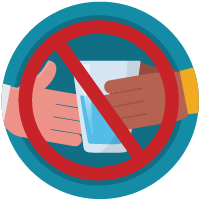


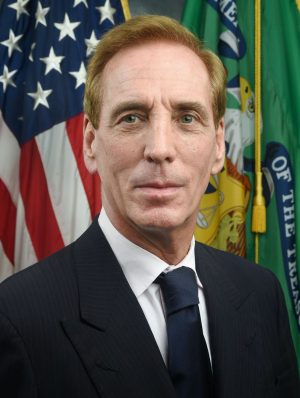
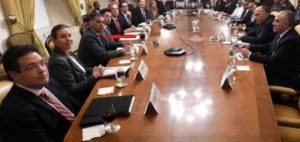
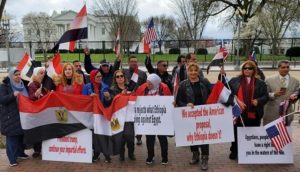

 To many people around the globe, the Nile River is considered as the lifeline of Egypt. In fact, sometimes the name Nile is synonymous with the name Egypt. All the great powers that ruled Egypt, Egypt itself and the modern world share similar views towards the Nile River. They all believe that the Nile is not just lifeline to Egypt, but they also believe that the Nile belongs to Egypt, forgetting Uganda, Burundi, Rwanda and Ethiopia who actually own the two sources of the Nile River and their tributaries. Today, when some of these composed owners of the Nile start using their share of the Nile, the ever vociferous Egypt and some world powers start acting and making decisions based on this half-truth that the Nile belongs to Egypt.
To many people around the globe, the Nile River is considered as the lifeline of Egypt. In fact, sometimes the name Nile is synonymous with the name Egypt. All the great powers that ruled Egypt, Egypt itself and the modern world share similar views towards the Nile River. They all believe that the Nile is not just lifeline to Egypt, but they also believe that the Nile belongs to Egypt, forgetting Uganda, Burundi, Rwanda and Ethiopia who actually own the two sources of the Nile River and their tributaries. Today, when some of these composed owners of the Nile start using their share of the Nile, the ever vociferous Egypt and some world powers start acting and making decisions based on this half-truth that the Nile belongs to Egypt. Ethiopia on Monday closed schools across the country and banned all public gatherings, including sports events, for 15 days.
Ethiopia on Monday closed schools across the country and banned all public gatherings, including sports events, for 15 days.


 The continent should learn from how the spread of virus has sped up elsewhere, Tedros Adhanom Ghebreyesus said.
The continent should learn from how the spread of virus has sped up elsewhere, Tedros Adhanom Ghebreyesus said.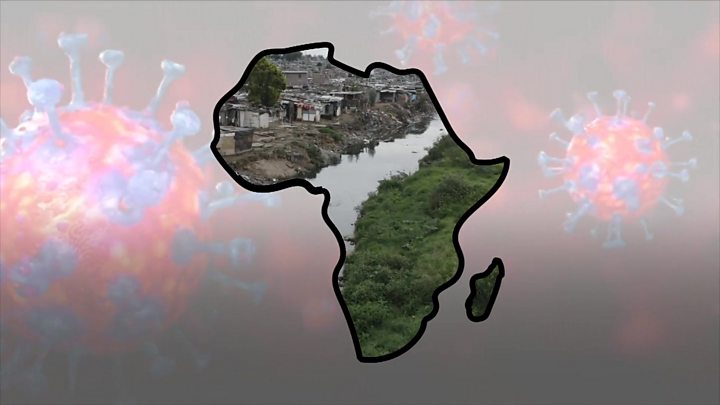



 Ethiopian Prime Minister Abiy Ahmed arrives in South Korea-
Ethiopian Prime Minister Abiy Ahmed arrives in South Korea-


 My deepest concern is will the human race be ready for the Vi-race next me?
My deepest concern is will the human race be ready for the Vi-race next me? Father Benitez is the parochial vicar of Saint Louis Catholic Church in Pittsford, just southeast of Rochester. With the help of parishioner and pilot Anthony Daniele, Benitez was able to bless his parish the same way he says the priests in his native Colombia did when he was a child.
Father Benitez is the parochial vicar of Saint Louis Catholic Church in Pittsford, just southeast of Rochester. With the help of parishioner and pilot Anthony Daniele, Benitez was able to bless his parish the same way he says the priests in his native Colombia did when he was a child. The report also indicates 12pc of the Ethiopian diaspora age 25 and older have a master’s degree, PhD, or an advanced professional degree. The figure for the US general population is 11 percent.
The report also indicates 12pc of the Ethiopian diaspora age 25 and older have a master’s degree, PhD, or an advanced professional degree. The figure for the US general population is 11 percent. Figure 1: Egypt wasting millions of gallons of precious Blue Nile water from Ethiopia creating artificial sea waves for Egyptians to frolic while Ethiopians are dying of thirst.
Figure 1: Egypt wasting millions of gallons of precious Blue Nile water from Ethiopia creating artificial sea waves for Egyptians to frolic while Ethiopians are dying of thirst.  Figure 2: Aqua Waterpark, Cairo, one of ten mega Public water Parks. in addition to thousands of private swimming pools.
Figure 2: Aqua Waterpark, Cairo, one of ten mega Public water Parks. in addition to thousands of private swimming pools. Figure 3: Waterpark, Cairo, frolicking Egyptians playing water-polo.
Figure 3: Waterpark, Cairo, frolicking Egyptians playing water-polo.  Figure 4: Young beautiful Ethiopian girls carrying potable water from distant sources. I see in my mind these truly beautiful girls in academic gowns, or in office setups with computers. (Rural Ethiopia)
Figure 4: Young beautiful Ethiopian girls carrying potable water from distant sources. I see in my mind these truly beautiful girls in academic gowns, or in office setups with computers. (Rural Ethiopia)
 Figures 5 a, b: a) Ethiopian children, men, and women traveling long distances on foot due to lack of proper development of infrastructure and dirt-poor income levels. (Rural Ethiopia) (above)
Figures 5 a, b: a) Ethiopian children, men, and women traveling long distances on foot due to lack of proper development of infrastructure and dirt-poor income levels. (Rural Ethiopia) (above)



 By Alemayehu G. Mariam
By Alemayehu G. Mariam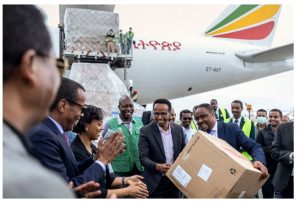
 In an apparent fit of pique at Ethiopia’s refusal to sign on to its terms, on 28 February the U.S. Treasury Department
In an apparent fit of pique at Ethiopia’s refusal to sign on to its terms, on 28 February the U.S. Treasury Department  Two Ethiopian peacekeepers were killed and four others wounded in a bomb blast in southern Somalia, officials said Tuesday.
Two Ethiopian peacekeepers were killed and four others wounded in a bomb blast in southern Somalia, officials said Tuesday.